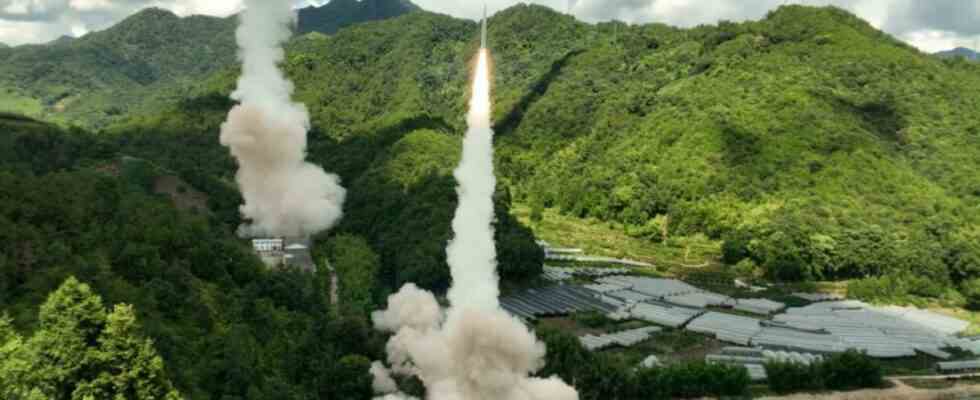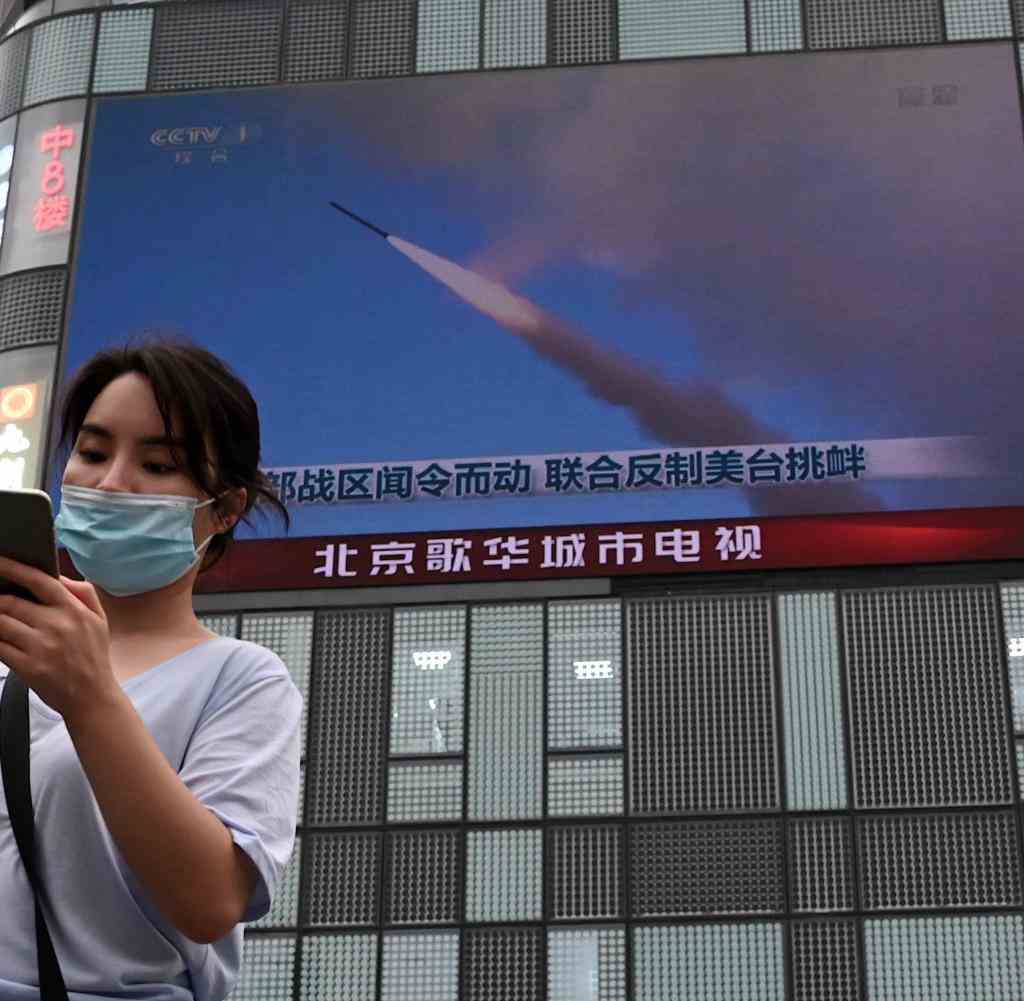“Beijing’s provocative actions are a significant escalation”
China begins military maneuvers near Taiwan
China has begun its announced military maneuvers near Taiwan. Six areas around the island have been selected for the “combat exercise”, “relevant ships and aircraft” should avoid these waters and the corresponding airspace, reported the state television broadcaster CCTV.
China has started the announced military exercises near Taiwan. Five Chinese rockets landed in Japan’s economic zone. The US government accuses China of an unnecessary escalation after the visit of the American top politician Nancy Pelosi.
Dhe US government accuses China of overreacting and unnecessary escalation following the visit of top American politician Nancy Pelosi to Taiwan. China has launched an estimated 11 ballistic missiles toward Taiwan, National Security Council communications director John Kirby said in Washington on Thursday.
“We condemn these actions.” Beijing’s actions are irresponsible. “China has overreacted, using the visit of the chairmen (of the House of Representatives) as a pretext to step up its provocative military activities in and around the Taiwan Strait.” Kirby lamented, “Beijing’s provocative actions are a significant escalation.”
In the conflict over Taiwan, China launched the largest demonstration of military power in decades. According to the Taiwanese government, the Chinese army fired “numerous Dongfeng series ballistic missiles” into the sea during the exercises. The drills extended to within 20 kilometers of the Taiwanese coast.
Five missiles fell in Japan’s Exclusive Economic Zone (EEZ), according to Japanese sources. “This is a serious matter affecting our country’s national security and people’s security,” Defense Minister Nobuo Kishi said. Japan protested to the Chinese side. It is the first time a Chinese People’s Liberation Army missile has landed in Japanese EEZ waters.
Kirby said the US government has predicted such a move and expects more responses from China to follow. One expects further military exercises and aggressive rhetoric. The US was not aiming for a crisis, he stressed. There is no reason for this to develop into a crisis.
It is also not in the interests of Taiwan and the region that tensions continue to escalate. The United States therefore decided to postpone a missile test of an ICBM originally planned for this week. But Kirby reiterated that the US is prepared to deal with anything the Chinese government decides to do.
“Preparing for an Actual Fight”
The Chinese maneuvers are expected to last until Sunday and include rocket attacks on targets in waters north and south of Taiwan — modeled after the last major Chinese military drills to intimidate Taiwan in 1995 and 1996. China’s official news agency, Xinhua, reported the drills were aimed at “blockade, attack of Naval Targets, Assault on Ground Targets and Airspace Control”.
Chinese military sources told the AFP news agency that the maneuvers were being conducted as “preparations for actual combat”. Should Taiwanese forces “deliberately come into contact with the Chinese military” and “accidentally fire a weapon”, Beijing’s armed forces would “take strict countermeasures” and the Taiwanese side would have to “suffer all consequences” in this case.
A woman stands in front of a public screen of state television CCTV in Beijing
Source: AFP/NOEL CELIS
Taiwan’s government spoke of “irrational actions that undermine peace in the region” with the aim of “challenging the international order”. She put the military on alert and held civil defense exercises. The Ministry of Defense said it was closely monitoring the situation. The island nation’s armed forces would act on the principle of “preparing for war without wanting war”. Taipei is not looking for an “escalation of the conflict”.
The Beijing government, which sees Taiwan as a breakaway part of Chinese territory, called the drills “necessary and just” and blamed the US and its allies for the escalation. “The United States are the provocateurs, China is the victim,” a spokeswoman for Beijing’s foreign ministry said on Wednesday.
The G-7 countries had already criticized China’s reaction to Pelosi’s visit on Wednesday. “There is no justification for using a visit as a pretext for aggressive military action across the Taiwan Strait,” the G7 foreign ministers said.
Russia, on the other hand, sided with China on Thursday. “As for the maneuvers, that’s China’s sovereign right,” Kremlin spokesman Dmitry Peskov said, according to the Interfax agency. Peskow once again criticized Pelosi’s trip. “It was a completely unnecessary visit and an unnecessary provocation,” said Kremlin chief Vladimir Putin’s spokesman.
“Kick-off Politics” is WELT’s daily news podcast. The most important topic analyzed by WELT editors and the dates of the day. Subscribe to the podcast at Spotify, Apple Podcasts, Amazon Music or directly via RSS feed.




